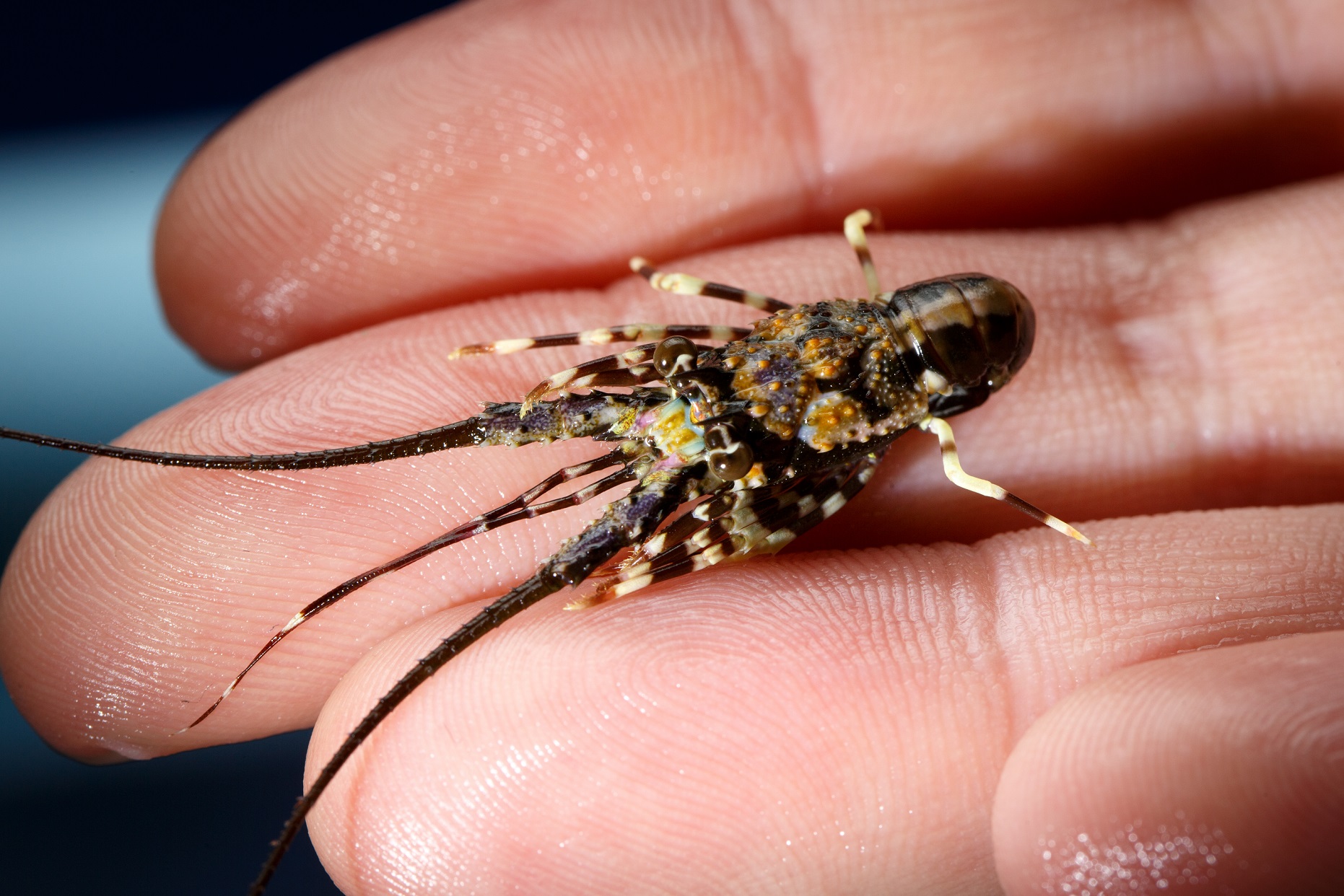
In case you missed it, we've had plenty to celebrate in July. Here's some of the amazing achievements our scientists have been recognised for and the great IMAS research we've been talking about...
A new research hub launched today in Hobart is set to deliver transformational change to the lobster aquaculture industry. Its focus – to develop commercial, sustainable and socially acceptable lobster production, from hatchery to market.
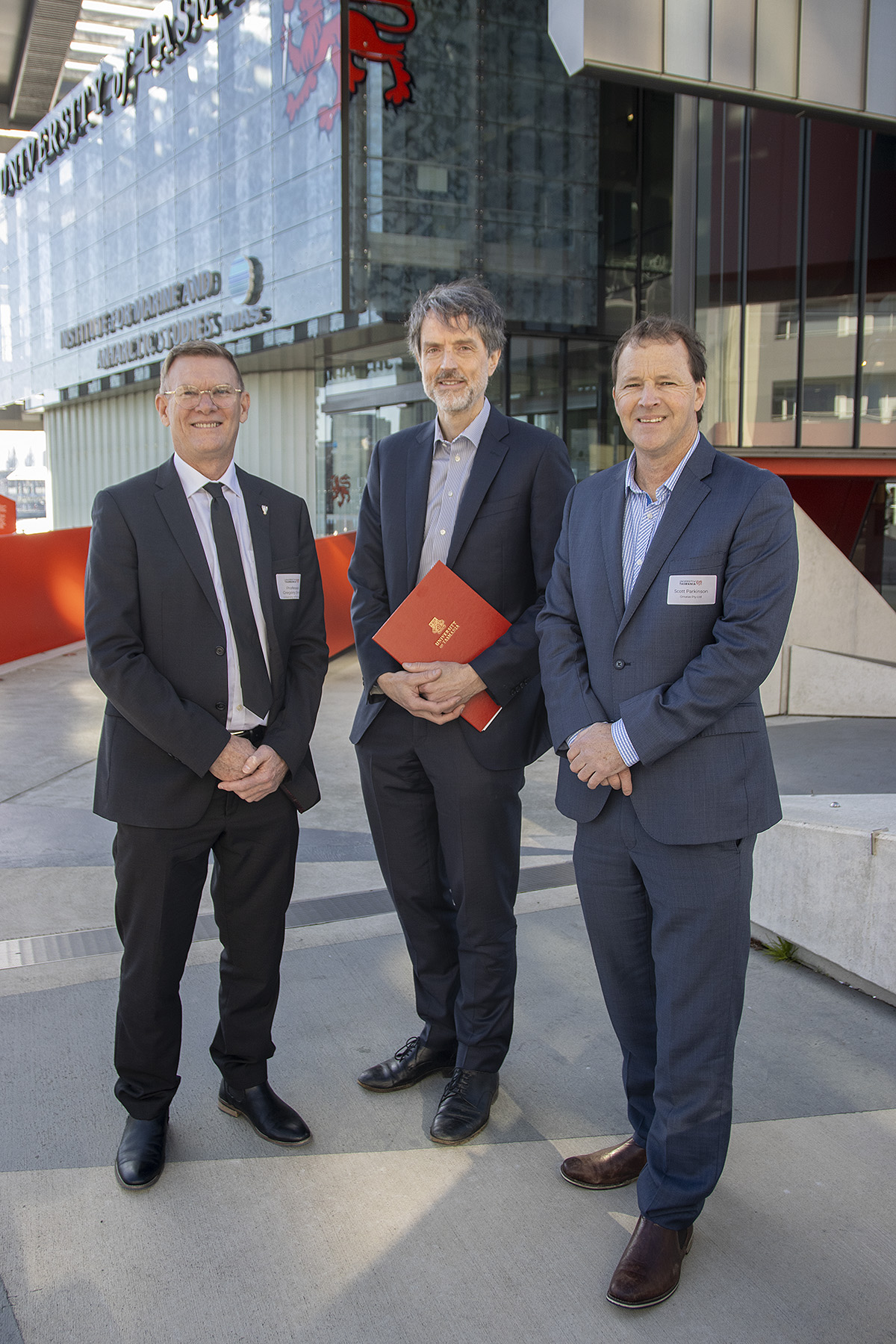 Headquartered at IMAS, this research and industry collaboration will bring many opportunities for Tasmania and beyond!
Headquartered at IMAS, this research and industry collaboration will bring many opportunities for Tasmania and beyond!
This includes reduced environmental impacts, a successful differentiated export lobster industry for regional Australia, new export products, enhanced education and workforce training opportunities, improved aquaculture food safety and biosecurity, and more.
Discover more about the ARC Research Hub for Sustainable Onshore Lobster Aquaculture: read the story or watch the video.
Images:
Top right: Juvenile Tropical Rock Lobster Panulirus ornatus
Left: Hub Director, Professor Greg Smith from IMAS, University of Tasmania Vice-Chancellor Professor Rufus Black, and commercial partner, Ornatas CEO Mr Scott Parkinson at the launch of the new ARC Research Hub for Sustainable Onshore Lobster Aquaculture
![]()
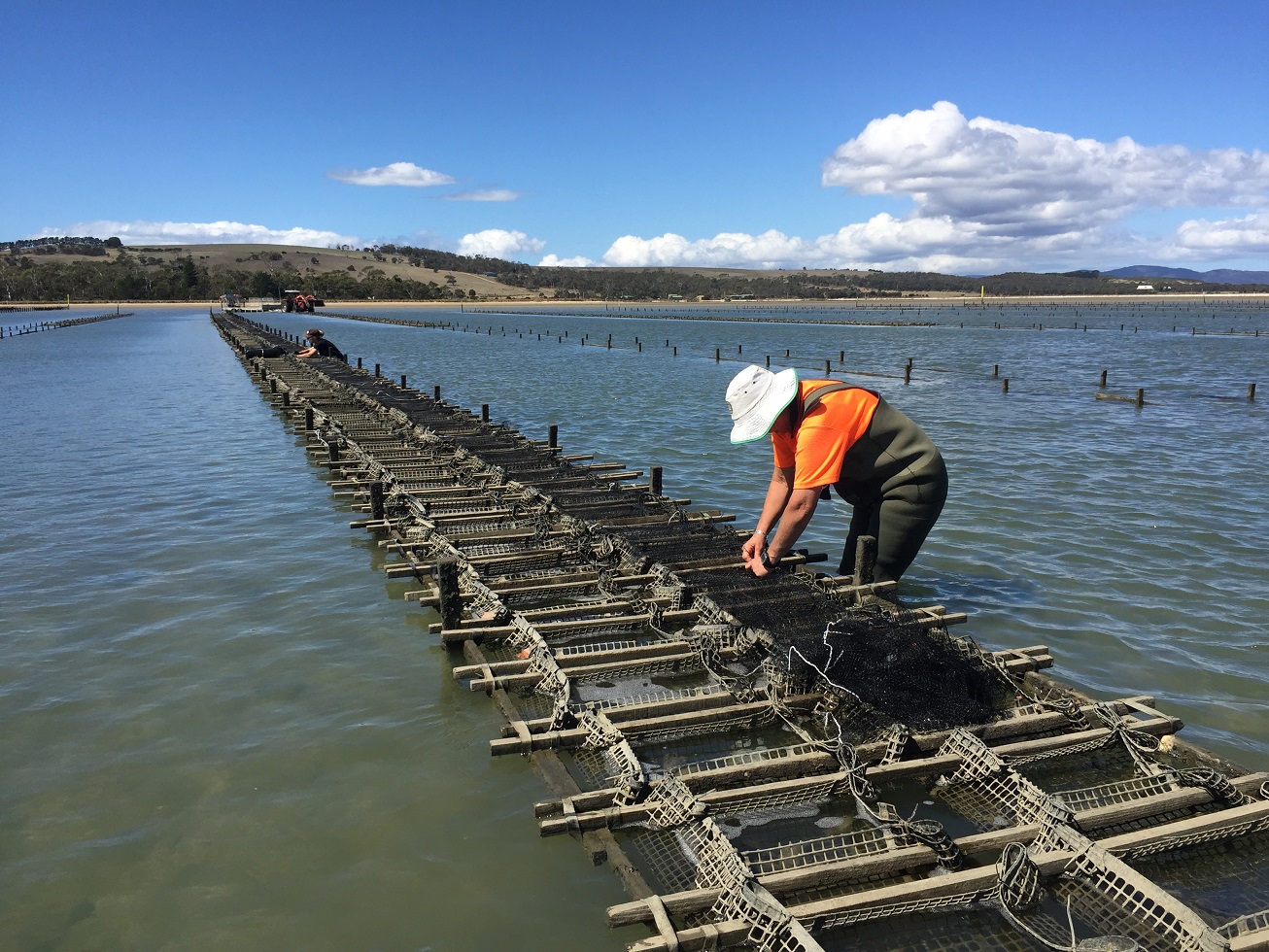 A deadly virus, a rapid research response, border crossings and quarantine. Sound familiar? This time it’s all about oysters...
A deadly virus, a rapid research response, border crossings and quarantine. Sound familiar? This time it’s all about oysters...
Disease-resistant Pacific oysters, selectively bred and reared at IMAS in Tasmania, are now thriving in the waters off Cowell on the Eyre Peninsula – and their offspring is set to safeguard South Australia’s oyster industry from the deadly Pacific Oyster Mortality Syndrome (POMS).
Image: ASI broodstock conditioning in Pipe Clay Lagoon, Tasmania (Photo: Lewa Pertl)
Whether it's inspiring the next generation of scientists, doing exceptional science, or getting science communication pitch perfect, our IMAS researchers are making a positive impact on science and society - and their efforts are getting noticed.
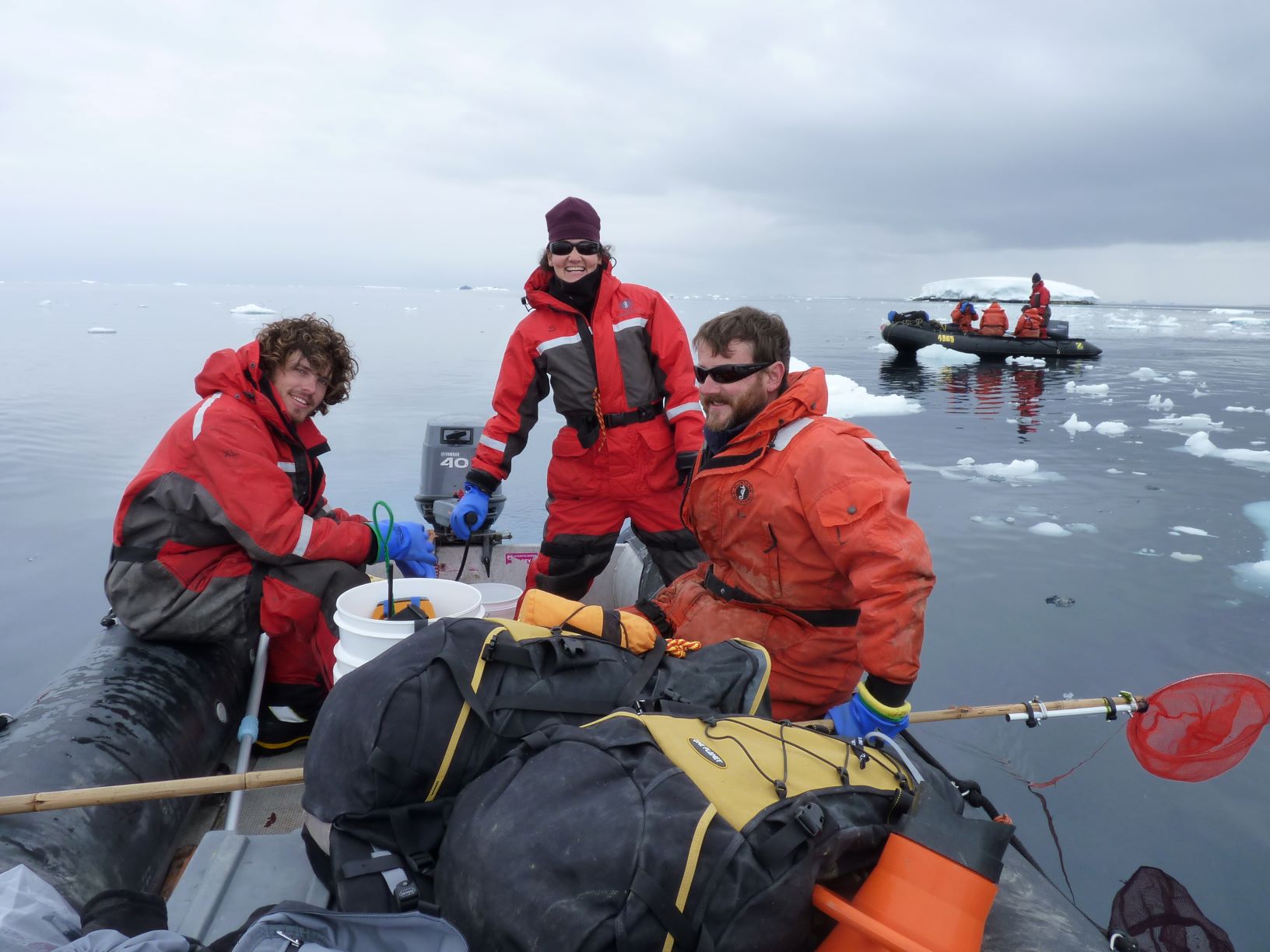 IMAS researcher and teacher, Dr Patti Virtue, is one of three recipients of this year’s Australian Antarctic Medal – and one of just four female medal recipients since their inception in 1987.
IMAS researcher and teacher, Dr Patti Virtue, is one of three recipients of this year’s Australian Antarctic Medal – and one of just four female medal recipients since their inception in 1987.
Patti was recognised for her exceptional efforts in mentoring and teaching the next generation of Antarctic ecologists, and for her outstanding contribution to understanding the role of krill in the Southern Ocean ecosystem and how climate change is likely to impact this tiny but vital crustacean.
A seasoned Antarctic science expeditioner, Patti collaborates across nations and disciplines on the diverse aspects of biological oceanography, sea ice ecology, zooplankton (krill) research and marine oils.
The Australian Antarctic Medals were announced by the Governor-General of Australia on a special Honours List for Midwinter’s Day. Read more…
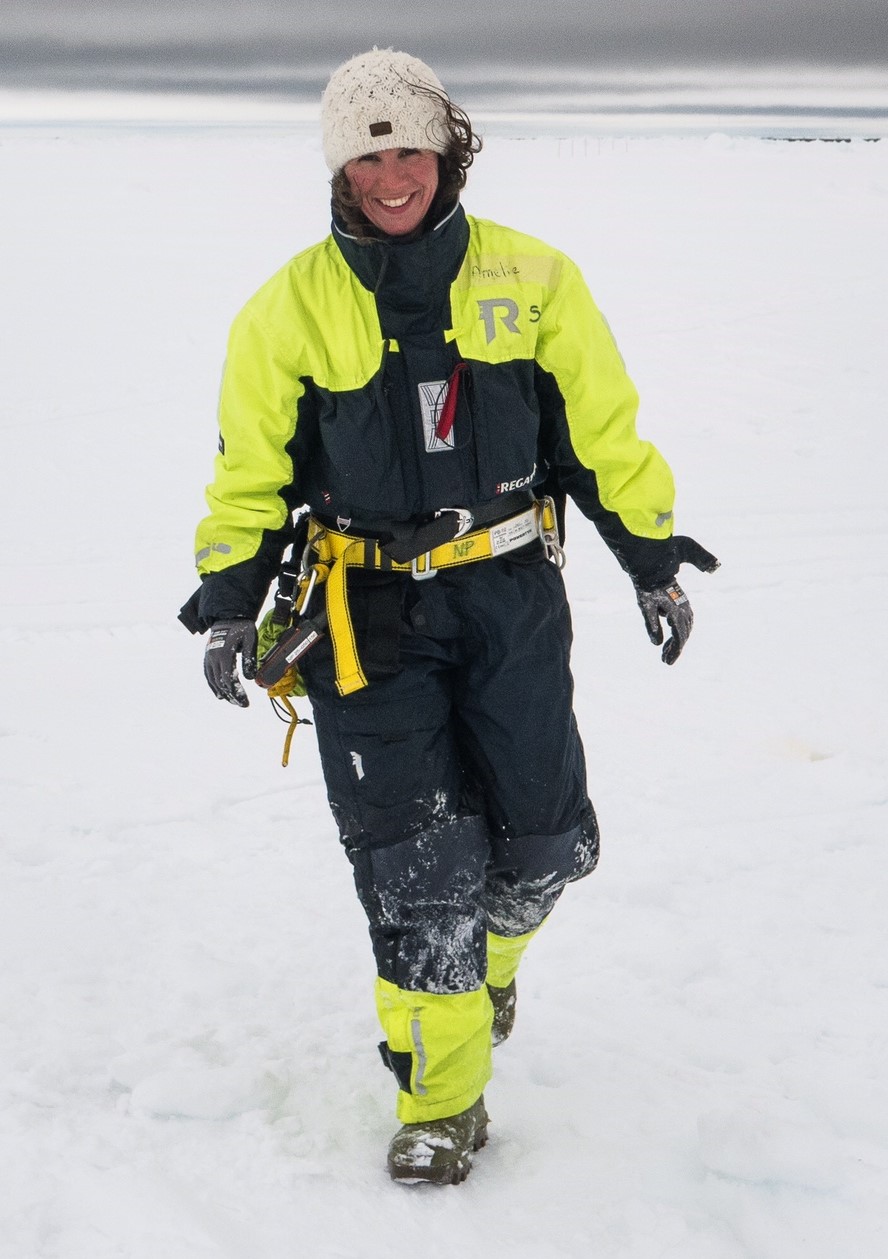 Image (above): Patti with Masters student Nick Alexander
Image (above): Patti with Masters student Nick Alexander
and researcher Ashley Kelly collecting marine samples
off the coast near the Casey research station, Antarctica.
Image (L): Amelie Meyer
IMAS and CLEX researcher Dr Amelie Meyer has been selected for an ABC TOP 5 Science residency, a media residency to discover Australia's next generation of dynamic thinkers and give them a voice.
Amelie believes that, with many climate records being broken over the last few decades, communicating our science to the community and to policy makers is absolutely essential.
“Being able to provide commentary on ongoing research, so that everyone can understand these complex issues, will hopefully lead to better decision making. And this ABC Top 5 Science residency is an amazing opportunity to do just that,” Amelie said in her interview on ABC RN Breakfast.
Image (L): Amelie Meyer
IMAS Adjunct researcher Dr Lokman Norazmi has made an impression in the international Falling Walls Lab season, currently underway.
For Falling Walls, researchers and early-career professionals pitch their innovative idea in just 3 minutes, showcasing a breakthrough that creates a positive impact on science and society.
Lokman took out the First Runner Up and the People’s Choice in the NSW category for his pitch-perfect talk on finding genetic solutions for ‘alien invasions’. He shared the advances to combat the menace of Gambusia holbrooki (mosquito fish), a noxious alien pest fish invading the freshwater ecosystems across Australia’s mainland states.
“Despite recent advances in synthetic biology, a genetic solution centred on Trojan Chromosome Carriers is the best way to combat alien invasive fish at continental scales. With one of the shortest reproductive cycles of fish species, G. holbrooki is an ideal candidate to demonstrate the feasibility of these genetic technologies,” Lokman said.
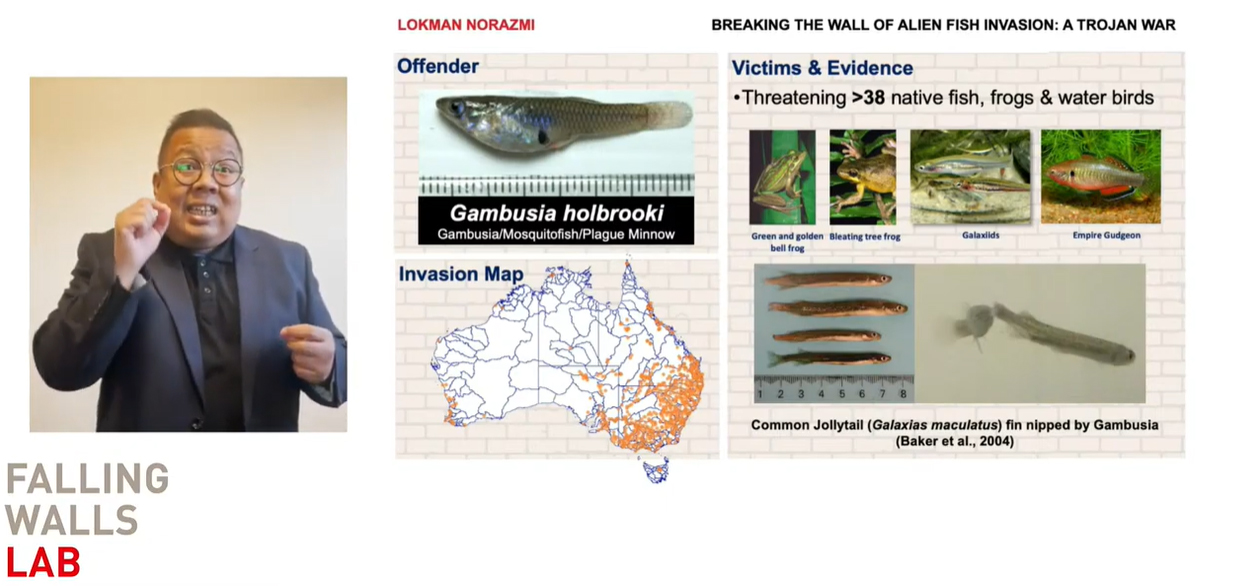
Image (above): Dr Lokman Norazmi was pitch-perfect at the Falling Walls Lab in NSW
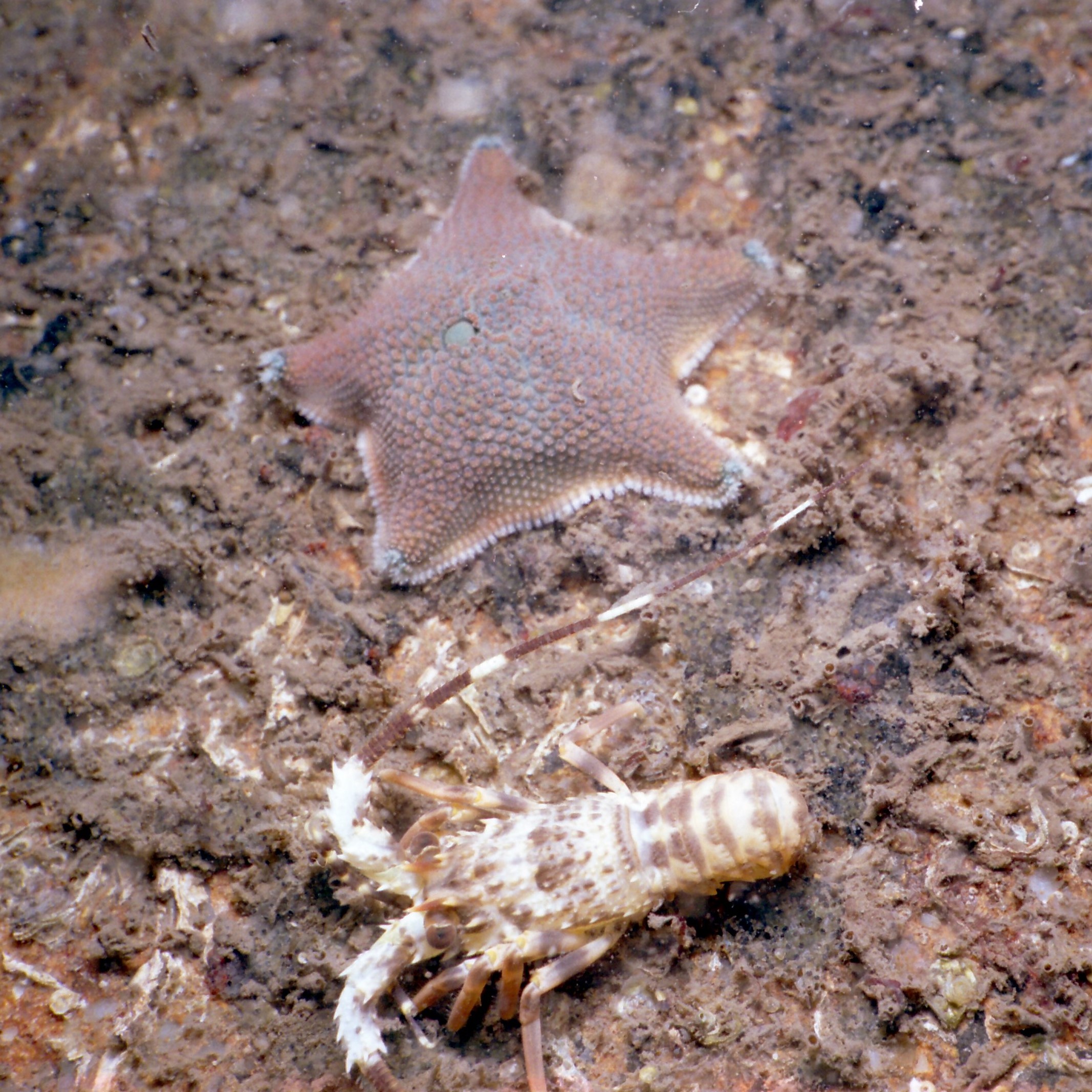 FISHERS REPORT TAGGED ROCK LOBSTERS TO WIN
FISHERS REPORT TAGGED ROCK LOBSTERS TO WINIn July, three fishers who reported their tagged rock lobster catches were winners in our IMAS lobster tag lottery.
IMAS runs a regular lobster tag lottery as an incentive for commercial and recreational fishers, processors and the broader community to report the tagged rock lobsters they recover and contribute to research into the size of stocks and sustainable harvests.
On the move... Since 2016, just over 200,000 undersize rock lobsters have been translocated from the deeper and less productive waters of Tasmania’s southwest, to sites along the east coast – from Cape Pillar to Cape Portland.
More than half of those were translocated within the last three years. A sample of 10% have been tagged so we can follow the enhanced growth expected in their new homes.
We’re starting to see quite a few recapture reports of these tagged animals, especially from St Helens and Bicheno areas, and all are showing good growth rates.
Caught a tagged lobster? Find out how to report it and be a winner here.
Image (right): Juvenile rock lobster and a starfish